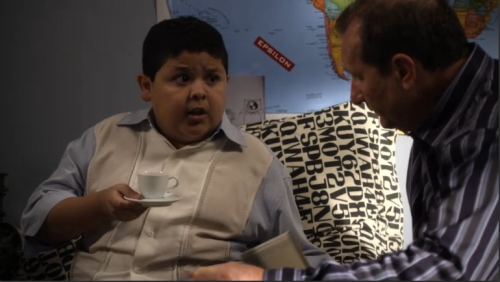Whaddya
say, shall we break the fourth wall today?
Do
what with the which now, you ask? Break the fourth wall- that imaginary barrier
between the actors on a stage and the audience in the theater (or for our
purposes, between characters in a story and the reader turning pages.)
Oftentimes, narrators and characters don’t even acknowledge the reader’s
existence. Other times they step right up and introduce themselves. “Call me
Ishmael,” says Hermann Melville in Moby
Dick. “In a sense, I am Jacob
Horner,” says John Barth in his lead off to The
End of the Road.
In
both cases you’ve got a first-person narrator, so it’s somewhat natural to
address the reader directly, or make personal asides. Still, it’s an interesting
choice to shake hands with the reader rather than launch into the story or kick
off some tension-building plot point. I happen to like it.
And
look at the amount of character info you can convey in just one sentence packed
with dialect and mannerisms and tone:
“You
don't know about me without you have read a book by the name of The Adventures
of Tom Sawyer; but that ain't no matter.” —Mark Twain, Adventures of Huckleberry Finn
“If
you really want to hear about it, the first thing you'll probably want to know
is where I was born, and what my lousy childhood was like, and how my parents
were occupied and all before they had me, and all that David Copperfield kind
of crap, but I don't feel like going into it, if you want to know the truth.”
—J. D. Salinger, The Catcher in the Rye
But
you don’t necessarily need a first-person protagonist to make this work. Before
he tells us “Billy Pilgrim has come unstuck in time,” Kurt Vonnegut presents
the reader with all sorts of personal vignettes, dirty limericks and the like
in his novel Slaughterhouse-Five. How
does that one begin?
“All
this happened, more or less.”
And
Italo Calvino’s If On A Winter’s Night A
Traveler speaks directly to the
reader because, well, it’s the reader that is the protagonist of that book. He
makes that pretty clear in his famous, fourth-wall-breaking first line:
“You
are about to begin reading Italo Calvino's new novel, If on a winter's night a
traveler.”
There
are plenty of other examples, too. This kind of opener can set tone, introduce
a character or frame the main story:
“This
is the saddest story I have ever heard.” —from Ford Madox Ford, The Good Soldier
“For
a long time, I went to bed early.” —from Marcel Proust, Swann's Way
“I
had the story, bit by bit, from various people, and, as generally happens in
such cases, each time it was a different story.” —from Edith Wharton, Ethan Frome
As
it turns out, I don’t mind in the least if an author breaks the fourth wall. If
anything it personalizes what I’m about to read, puts me on an equal footing
with the author and treats me like I’m worth their story-telling time. Anybody
else a fan? Anybody hate it?








.bmp)

.bmp)

















